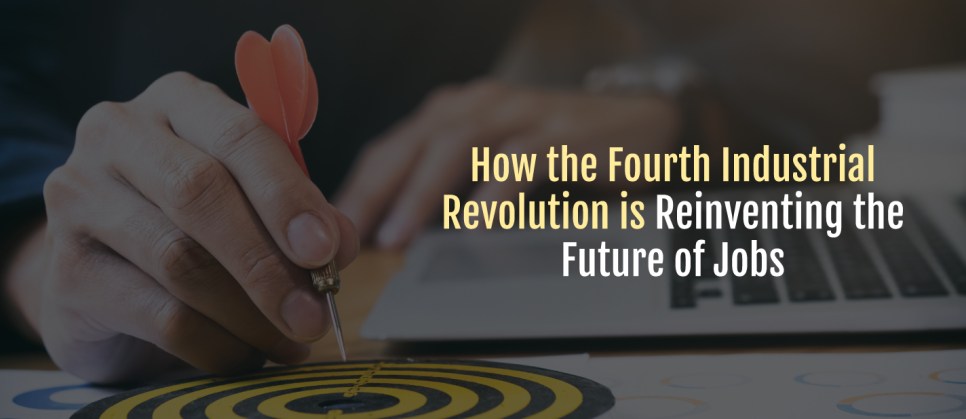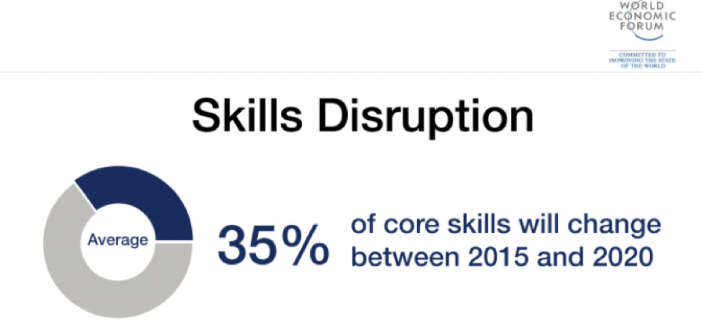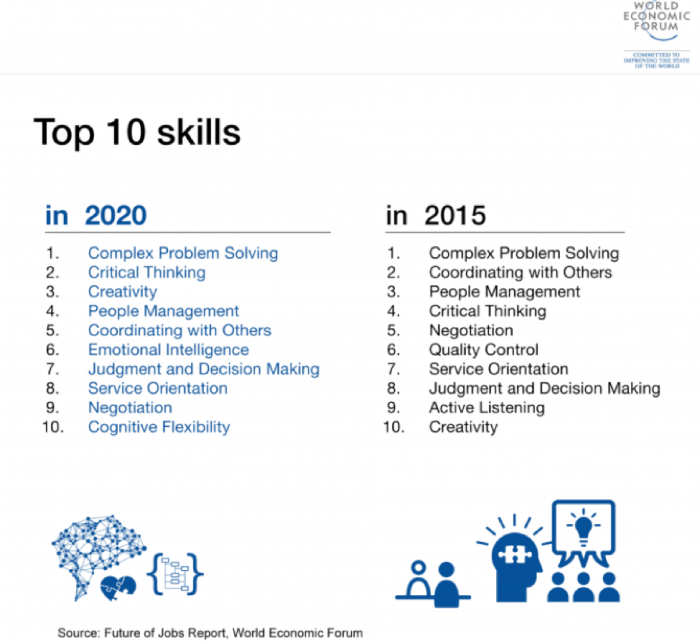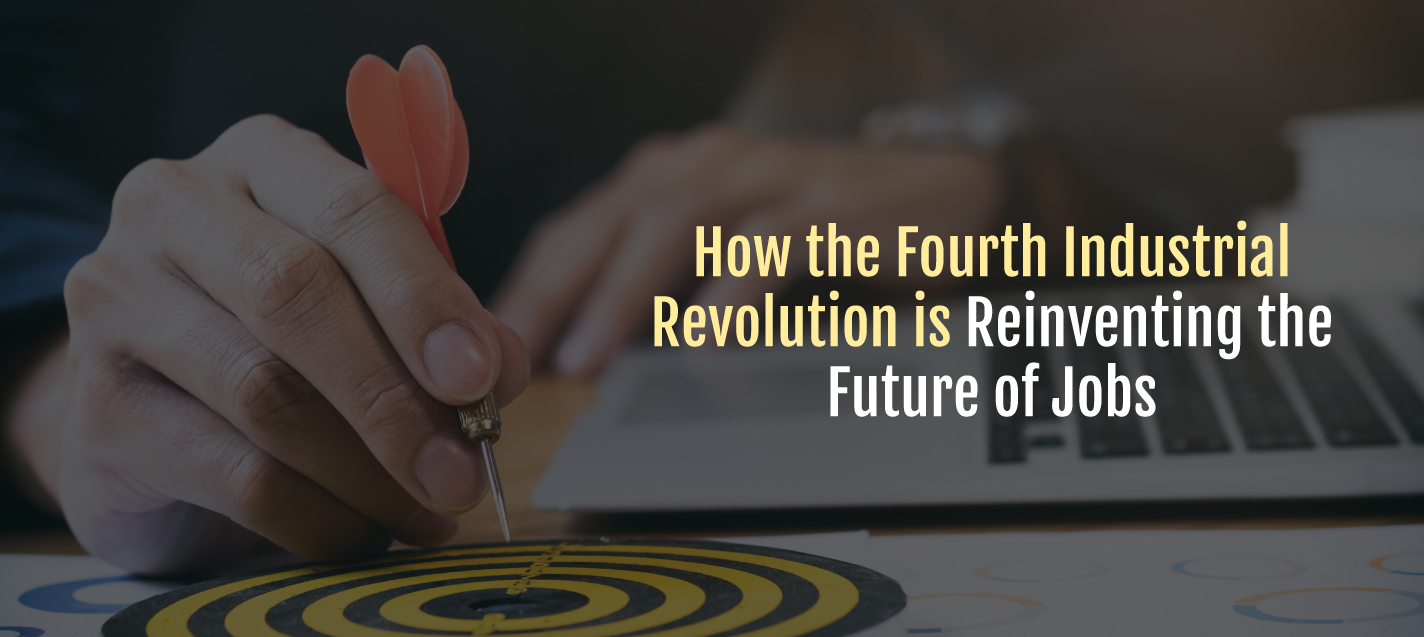How the Fourth Industrial Revolution is Reinventing the Future of Jobs

Zvika Krieger co-leads the World Economic Forum’s Center for the Fourth Industrial Revolution in San Francisco, where he works with governments, companies, civil society, and other stakeholders from around the world to accelerate the adoption of new technologies in ways that serve the global public interest.
In this interview between Salesforce and Krieger, the latter spoke about the Fourth Industrial Revolution and its impact on business and society.
Many commentators suggest that the Fourth Industrial Revolution calls for a paradigm shift in the role that companies play in society. As companies begin to adapt their business models to leverage emerging technology, ethics issues around topics like privacy, data stewardship, and growing inequality are becoming ever more common in the boardroom. What advice do you have for CEOs attempting to navigate their company through this new landscape?
There was a time when tech companies in particular were reluctant to take responsibility for the societal impacts of their products. As recently as two years ago, you would often hear company leadership saying things like “We’re just the platform,” ”We’re just the software,” ”We’re just the hardware,” ”We’re not responsible for how people use our products.”
I think that there has been a real sea change in terms of how these companies — and particularly their CEOs — are thinking about their responsibility for the impacts of emerging technologies.
Recent geopolitical events — such as election results in the U.S., Europe, and beyond, and incidents such as the Brexit vote — have been a real wake-up call that there is rising populist discontent around the world, in which people are really starting to feel the impacts of the Fourth Industrial Revolution — and resentful that the benefits are not being evenly distributed.
Technology itself is increasingly in the crosshairs of this populist backlash — and if that continues to escalate, it will impact the core business models of many companies and their ability to truly leverage these technologies.
What that means is that this need for the CEO to navigate through these new moral and ethical questions, and to take responsibility for the societal impacts of these technologies, isn’t just about corporate social responsibility any more. It’s about the core business interests of these companies.
And while the focus right now is on tech firms, it won’t take long for every industry to be held to this same elevated standard. It’s also important to note that technology is changing incredibly quickly — faster than ever before. And government — somewhat unsurprisingly — is struggling to keep up.
Government has traditionally been the vehicle for shaping the trajectory of emerging technologies so that they serve the best interests of society. But policy-making is designed to be deliberative and intentional, and that’s not a process that’s a good fit in a world that’s changing so rapidly. As someone who spent much of my career in government, I saw this first hand when I was at the U.S. State Department as a senior adviser for tech and innovation.
So, if government is struggling to keep up on both because it doesn’t have the expertise in technology and because policy-making is not designed to keep up, then it really follows that leading companies — and the decisions that they make — will determine the impact that these technologies will have on society. That’s a significant responsibility.
Leading companies — and the decisions that they make — will determine the impact that these technologies will have on society.
The World Economic Forum’s “Future of Jobs” report found that 35 percent of core skills will change between 2015 and 2020. As companies come to terms with their responsibilities in the Fourth Industrial Revolution, a key focus must be to empower and educate their employees to keep up with the pace of change. What is the role of the corporation in ensuring that its employees are constantly skilled up and trained so that they can flourish?
Our recent “Future of Jobs” report investigated the top 10 skills categories driving the current jobs market, and how they’re likely to change by 2020. Some of the skills key to our current labor market aren’t even on the list for 2020. What that means is that a shift to lifelong learning is absolutely essential. As the pace of technological change quickens, we need to be sure that employees are keeping up with the right skills to thrive in the Fourth Industrial Revolution. That applies to both technical and soft skills. There will be changes in both areas.


Companies need to be thinking about enabling their employees to both code in new coding languages, but also to change their mix of soft skills. As AI begins to impact the workforce and automation replaces some existing skills, we’re seeing an increased need for emotional intelligence, creativity, and critical thinking, for instance.
The technologies of the Fourth Industrial Revolution give companies, governments, and other institutions a vastly increased ability to understand individuals — and then personalize the service they offer to those individuals. How should business leaders be thinking about leveraging technology to get closer to their customers, and build a deeper and more valuable relationship with them?
The unprecedented amount of data that companies can now collect provides amazing opportunities to meet the most specialized customer needs and create entirely new business models. It has the ability to address some of the most pressing societal challenges. But with great power comes great responsibility.
Part of the challenge is that we want technology in the Fourth Industrial Revolution to be empowering, and not deterministic. We don’t want technology to take away people’s freedoms; we want it to give people more choice and more autonomy.
We don’t want technology to take away people’s freedoms; we want it to give people more choice and more autonomy.
In that case, one of the key challenges for companies is that their customers often don’t have a sophisticated understanding of how their personal data is being used, and how their privacy is impacted as a result. The best examples are those enormously long and complex ‘“Terms of Service” documents that 99 percent of people simply scroll through without reading, so that they can use a new app or service.
There was a time when that didn’t really matter. The data that was being collected on people was quite minimal, and there weren’t a lot of ways in which that data could be used. But now, as we enter the heart of the Fourth Industrial Revolution, we are collecting unprecedented amounts of data. And our ability to use that data is increasing exponentially. That data has the ability to shape outcomes in almost every aspect of our lives.
Yet the average customer doesn’t really understand that when they click “Agree” on that Terms of Service, it doesn’t mean the same thing as it did five years ago. The impact is far, far greater. Even if we are theoretically giving customers the choice about whether to opt in, oftentimes they don’t even know what they’re opting into.
This all goes back to our earlier discussion. Businesses have a far greater responsibility than ever before, and must take it seriously if they want their businesses to thrive in the long term. In this case, CEOs must become ethical stewards of customer data. Not only because it’s the right thing to do, but because if they don’t, then it’s only a matter of time before customers grow resentful, and reject those companies that are not good stewards of that information.
This article is part of a Trailblazer spotlight series on the Fourth Industrial Revolution — a concept introduced by Klaus Schwab at the World Economic Forum to describe the fundamental shift in the business and social landscape as a result of a fusion of technologies that is blurring the lines between the physical, digital, and biological spheres. For this series, we’ve interviewed a number of chief executives and thought leaders about the impact of the Fourth Industrial Revolution on the business world.
Lava is an authorised Salesforce Partner in Malaysia and has more than a decade of experience in cloud solutions which includes marketing automation, CRM implementation, change management, and consultation. We pride ourselves in not just being a CRM partner but in also understanding the needs of our customers and taking their business to the next level.

